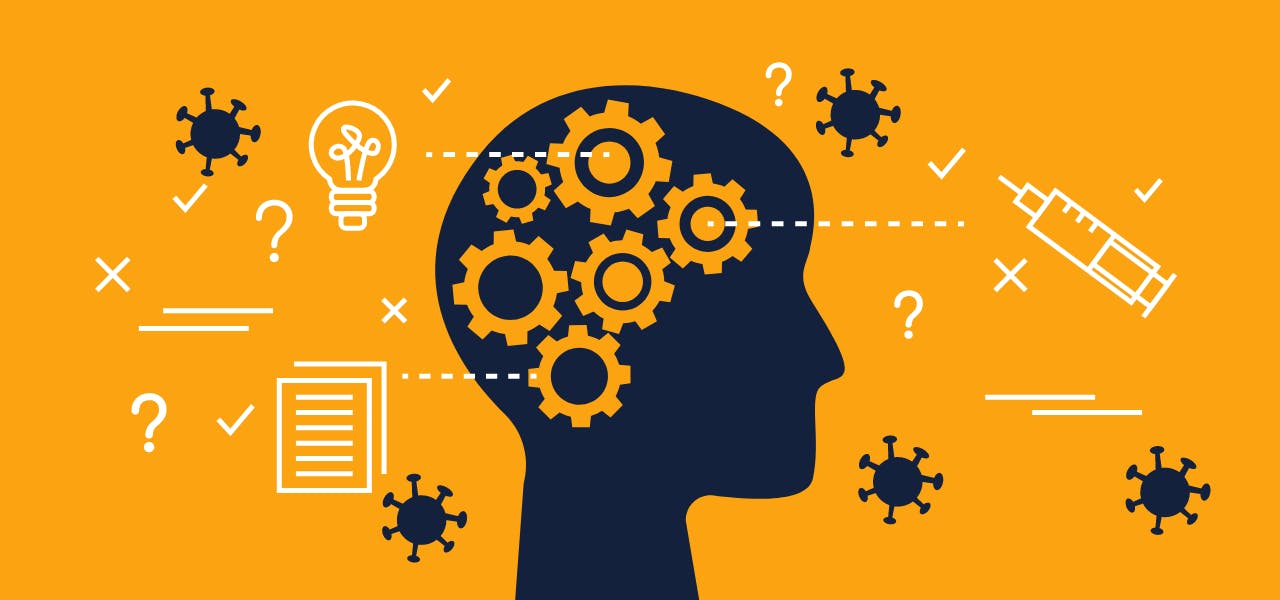The importance of healthy skepticism is a necessary part of society. Accepting the “facts” given to you by science or the government at face value can be dangerous. For a society to be truly successful, those in charge must know they will be challenged, so they have to be able to provide evidence to substantiate their claims at any given time.
There are times when this skepticism goes too far, though. Instead of requesting evidence to back up the claims, some people are denying science entirely if it doesn’t fit in line with their beliefs. When the evidence makes people uncomfortable, they respond by making allegations that the science behind it was biased in some way. With certain topics, like the “flat earth” controversy, these allegations are mostly innocent and easily refuted. In other cases, though, like the COVID-19 pandemic, science denial can turn deadly as individuals dismiss facts they don’t agree with and spread their misinformation amongst others.
Logical Fallacies and Science Denial
You’ve probably heard someone, possibly even yourself, state the conclusion that common sense isn’t common anymore, and logic isn’t logical. In school, logical theorems are based on the postulate of “If P, then Q.” If one thing is true, and it leads to another, then the end result must be true, too. This postulate is used in science, too, but it isn’t as set in stone.
Scientists understand that this theorem leads to a lot of logical fallacies that have to be disputed and refuted. For instance, if a cat has four legs and fur, and you see something with four legs and fur, it must be a cat. We all know that’s not true. Scientists have the onus of determining every potential fallacy in their experiment and accounting for it.
When there’s a fallacy that could potentially exist, and an outcome that is disagreed upon, science denialists will find the loophole and claim the logic is incorrect. This skepticism makes researchers work harder to close any potential gap in their theories, but it’s also dangerous. There are some things that absolutely can’t be proven. They’re postulated, predicted, and analyzed with data. But predicting millions of deaths if certain measures aren’t taken isn’t something that you’d want to see occur in real life just to prove your research is correct. Because of the limitations of certain studies, science denialists are able to utilize those gray areas for their benefit.
The Facts (and Controversies) Around COVID19
COVID-19 has become a global controversy. Some people claim it’s a political agenda. Others insist it was a government or Mafia test to see how people react in a crisis and then go after them while they’re weak to take over. The newest phrase, “sheeple” refers to how the masses listen “blindly” to whatever they’re told to do. No one wants to be a sheep, right? But aren’t you a sheep if you listen to the side calling the other side blind?
With so many controversial accusations thrown around, science denial is at an all-time high. The present COVID-19 health crisis is spiraling into chaos as people believe and spread myths. Some of the more dangerous science denial myths include false misinformation such as:
● Children can’t get the virus. Many, many children have had COVID-19, and many have died from it, too.
● Getting a package from China can spread the virus. COVID-19 is now global. China is not the only source of the virus. However, the CDC has reassured us that, although the virus does survive on surfaces, it’s not likely to survive a domestic or international shipping transit.
● COVID-19 is a death sentence. Yes, the mortality rate for this disease, especially when it first began, is higher than we’d like. However, the majority of people who are infected with the virus recover after an initial flu-like bout, and still others are infected with no symptoms whatsoever.
● Using chlorine, alcohol, or bleach on your skin or ingesting it kills the virus. These are chemicals that are dangerous and deadly. They can disinfect surfaces, but there is no evidence that they kill a virus inside your body. They can, however, damage your organs irretrievably.
Denying science, whether it’s in favor of your belief or against something that you don’t want to hear, is dangerous to the collective society. Yet this practice is becoming more and more common as people prefer to live based on their own agendas rather than believe in science. The population’s faith in research-based evidence is slowly eroding as science denial takes over.
Using Impactio to Demonstrate Evidence
Regardless of any controversial topics you experiment with that might be an obstacle in your career or the advancement of science, it’s important to showcase your professionalism. The more evidence-based data and text you can compile, the more likely you are to be able to refute allegations of the science denialists. One way to do this is to use the right program to put together your article, which is why so many scholars turn to Impactio.
